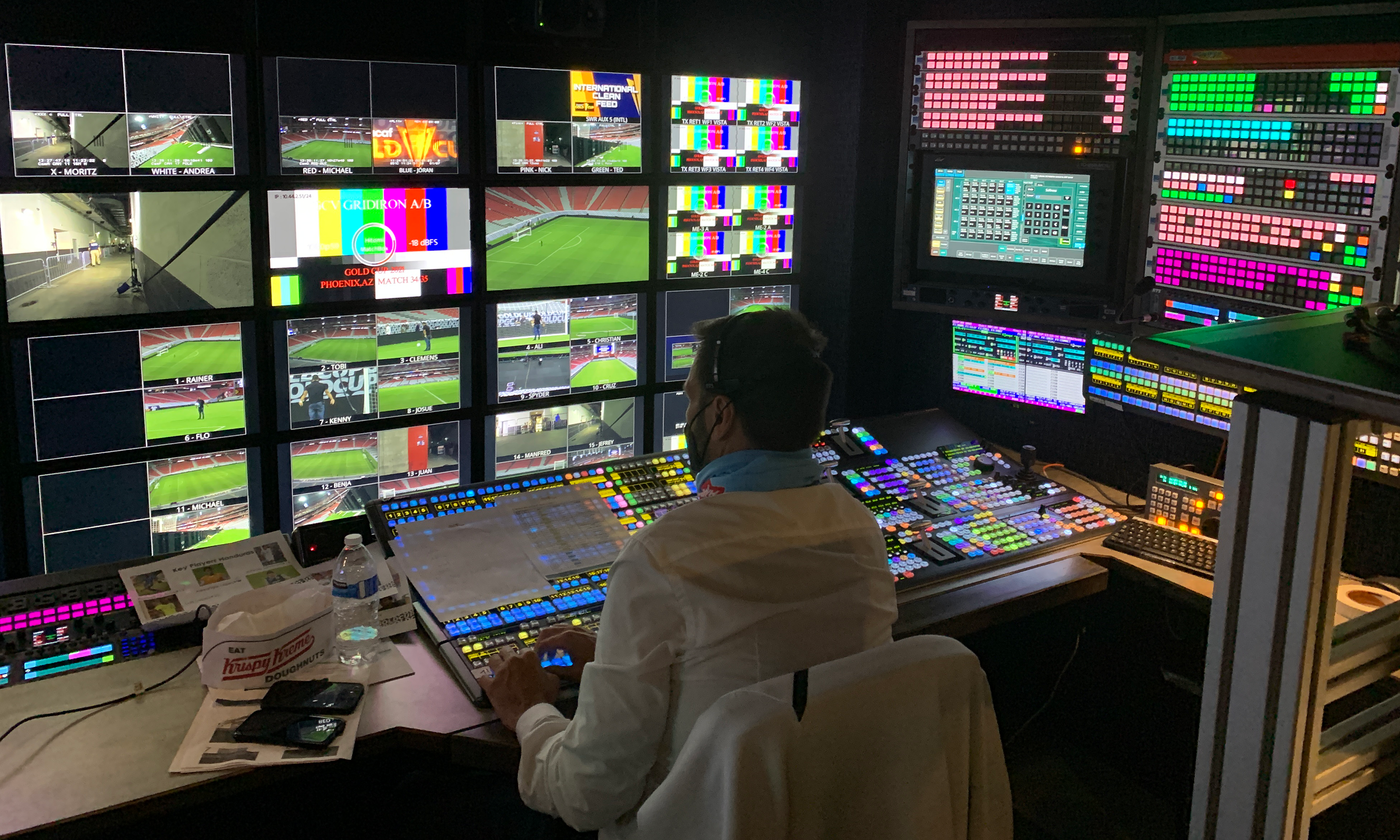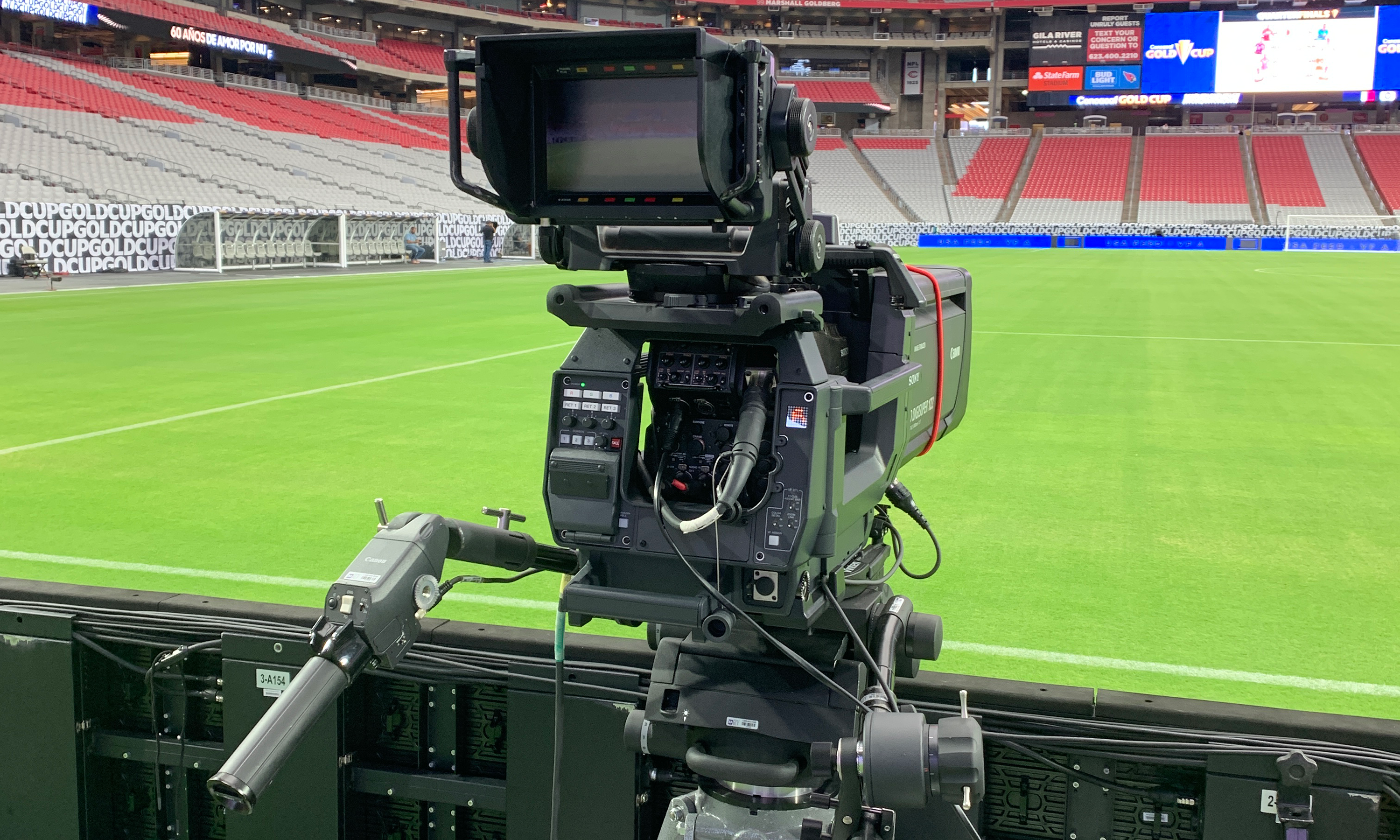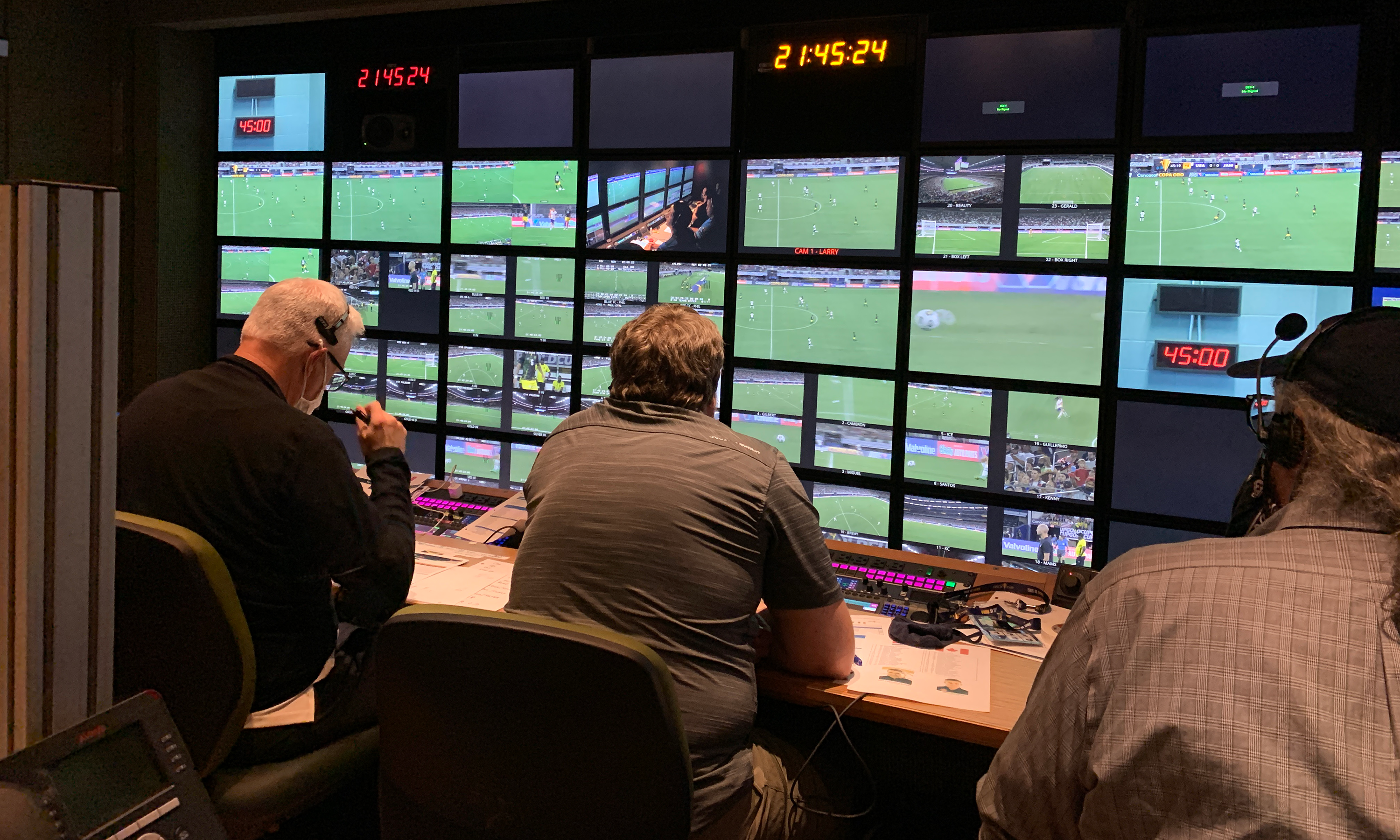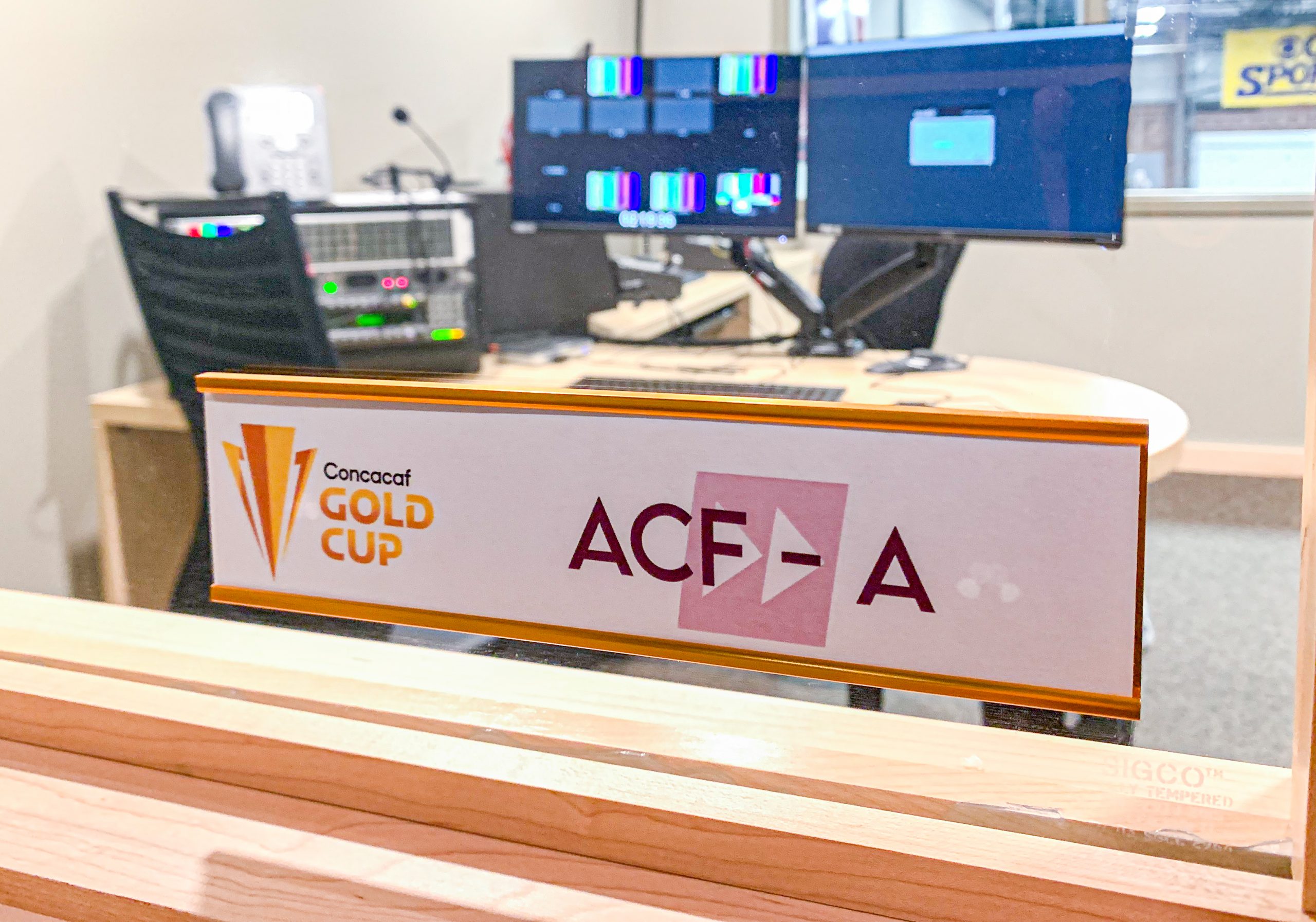Host Broadcast Services Drives Transcontinental Transmission, Production for CONCACAF Gold Cup
Game Creek trucks, GCV Anywhere workflow handle 10-venue, 31-match tourney
Story Highlights
A summer loaded with international soccer tournaments will see the crowning of another continental champion on Sunday when the U.S. and Mexico meet in the CONCACAF Gold Cup Final (8:30 p.m. ET, FS1, Univision, TUDN) at Allegiant Stadium in Las Vegas. The match caps a comprehensive, month-long production and operational effort marked by innovations in workflow, live video, and digital-content delivery.
As has been the case for the past few iterations of this tournament, CONCACAF tapped Host Broadcast Services (HBS) — the organization that produces major global soccer events like the FIFA men’s and women’s World Cup and the UEFA European Championship — to manage all technical, editorial, booking, and crewing efforts for the 2021 Gold Cup. HBS is also driving new efforts in digital and ENG coverage.

Sebastian Von Freyberg is one of the producers and directors who have called the 31 matches of the CONCACAF Gold Cup produced by Host Broadcast Services. He will direct the Gold Cup Final on Sunday.
Sunday’s final will be the tech-jammed conclusion of a tournament for which CONCACAF and HBS will have produced 31 matches in 10 venues across the U.S.
Highlighting the effort are advances in transmission and video delivery with Game Creek Video’s deployment of its GCV Anywhere platform. Also, some of the vendor’s newest IP-centric mobile units — GCV Bravo, Columbia, Gridiron, Celtic and Gotham — were deployed, and a customized remote-production center was built in its Hudson, NH, facility. CONCACAF’s Additional Content Feed (ACF), which offered more digital and ENG content to rightsholders and club media teams, and EVS replay for the tournament were operated from there.
At the tournament’s peak during the Group Stage, GCV Anywhere was supporting multiple productions occurring simultaneously in Orlando, Dallas, and Kansas City. Twenty-four channels of H.265-encoded 1080/60p HDR video were transported to the New Hampshire facility to feed seven remote EVS operators, three EVS operators, three EVS IPDirectors, and 12 intercom positions there.

Each Group Stage match of this year’s Gold Cup was captured by 23 or 24 cameras. In the Knockout Rounds, that number was boosted to 26-28.
“The one thing that I really appreciate when we’re on the road and are working long hours is the great attitude of the [Game Creek Video] people,” says Oscar Sanchez, director, broadcast operations/executive producer, CONCACAF. “The engineers in the truck, everybody on the Game Creek side has been so good, and their units are in such good shape.”
CONCACAF and HBS also tapped VISTA Worldlink’s popular “at-home” production facility in Dania Beach, FL, to serve as its Broadcast Operations Center (BOC) and integrated graphics and commentary for rightsholders in the U.S. (Fox Sports, Univision, TUDN), Canada (OneSoccer), Mexico (Televisa, TV Azteca), and Central America. Vista Worldlink Director, Sales, Marc Beckmeier served as project leader.
Sanchez notes that, throughout the tournament, a 1080p HDR feed has been produced in the truck onsite but not transmitted because of a lack of interest from the various rightsholders. Instead, the signal delivered is 1080i SDR.

Game Creek Video’s IP-centric Bravo, Columbia, Gridiron, Celtic, and Gotham were onsite at the 10 venues hosting matches.
Where there has been increased demand by broadcast partners is in cloud distribution. As a result, HBS sought out the services of The Switch and, through its Mimic cloud-services platform, initiated fiber transmission from the match venues to the BOC for distribution to rightsholders. The Switch SVP, Sales, Rick Behar played a key role as project leader.
“We’ve been exploring this coming into this tournament, and we’ve been extremely happy with it,” says Sanchez, noting that CONCACAF Technical and Transmission Director Dario Boronat has overseen the effort. “This isn’t the future. This is the now.”
In terms of production gear, each Group Stage match was covered by 23 or 24 cameras. In the Knockout Rounds, that number was boosted to 26-28. At least three super-slow-motion cameras were committed to each of the 31 matches. Cable-cam systems from Spidercam and Skycam were rigged up at most of the stadiums, and 3G Wireless handled signal delivery for all RF video and audio solutions.

The GCV Anywhere remote-production operation for the Gold Cup was built at Game Creek’s facility in Hudson, NH.
One of the biggest challenges of this year’s event was crewing. Typically, CONCACAF and HBS bring in front-bench talent from across the globe to produce the event, which is second in stature in this part of the planet only to the FIFA World Cup. That wasn’t feasible given the many travel restrictions still in place and in flux as the industry continues to cope with COVID-19 restrictions.
Even so, CONCACAF and HBS were able to recruit a highly respectable stable of directors, producers, and coordinating producers to oversee the live broadcasts: Ken Neal, Glen Wilhem, Dacio Alonso, Javier Estrada, Shaw Brown, Sebastian Von Freyberg, Ute Goser, Jeff Straus, Kristin Hennessey, Riki Van Steeden, and Laszlo Szele.
“We have a strong culture of soccer production in the U.S. right now,” says Sanchez. “The people that work with us [regularly] are fantastic.”
On Sunday, Von Freyberg will direct alongside Goser in the producer chair.
